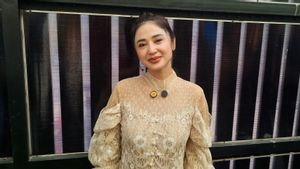Property consultant Knight Frank Indonesia considers that national rice reserves reaching 4 million tons open up great opportunities for the growth of the warehousing sector, especially high-standard food warehouses.
"The government's rice reserves, which reached 4 million tons, are an important point in encouraging the achievement of food self-sufficiency," said Senior Research Advisor Knight Frank Indonesia Syarifah Syaukat, quoted from ANTARA, Sunday, June 1.
According to him, the need for adequate storage space is increasing, and this provides momentum for the development of the warehousing sector, especially warehouses with food standards.
He emphasized that warehouses for storing foodstuffs such as rice cannot be arbitrary. These facilities must meet a number of criteria such as controlled temperatures, adequate ventilation, and stable humidity in order to maintain the quality of rice.
"Private business actors who want to take advantage of this opportunity need to adjust the warehouse specifications to comply with national food standards," added Syarifah.
Furthermore, he explained that integrated warehouses located close to ports or logistics stations will increase distribution efficiency and accelerate the distribution of foodstuffs to various regions.
In the long term, if the rice surplus is maintained, a storage facility is needed for a long period of time or a supporting warehouse for export activities.
The government under the leadership of President Prabowo Subianto made a new history in national food security management. For the first time since the founding of Perum Bulog in 1969, national rice reserves have crossed 4 million tons.
SEE ALSO:
Minister of Agriculture Andi Amran Sulaiman called this achievement an important milestone towards Indonesia's food independence.
This achievement is not just a number, but a tangible result of agricultural strategies that favor farmers. Strengthening domestic production and absorption of local crops have proven to be effective in maintaining food stability and improving the welfare of farmers," said Amran.
The English, Chinese, Japanese, Arabic, and French versions are automatically generated by the AI. So there may still be inaccuracies in translating, please always see Indonesian as our main language. (system supported by DigitalSiber.id)















